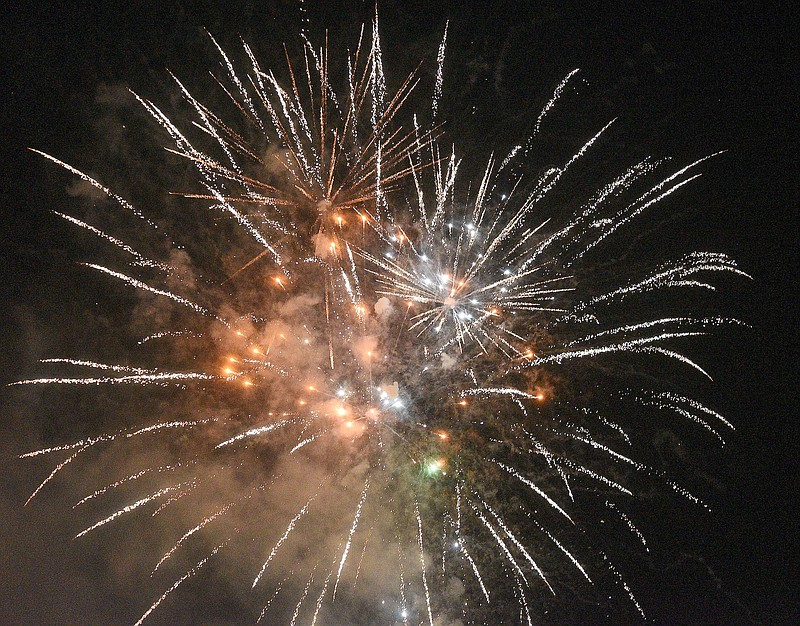The Fourth of July fireworks were wonderful. We drove around the neighborhood to check out what was happening. Best of all was watching the sky explode over the Tennessee River. Of course, we were sad for everyone living near Canada, where smoke from horrendous wildfires there forced some cities to cancel their July Fourth fireworks shows. I was grateful not to have to endure their air pollution levels — until I wheezed as I drove past a house seemingly wrapped in gauzy smoke from the fireworks lit up in the driveway. I heard Mother Earth whisper to me that my gratitude should come with a grain of salt, or saltpeter.
Did you know that saltpeter, used in food preservatives and fertilizers, also helps launch fireworks into the sky? There's about a 42% increase in fine particulate pollutants in the air following July Fourth fireworks displays. The pollution slowly dissipates, but these microscopic pollutants are tiny enough to travel into your lungs, where they can cause respiratory problems. Think what that means when your neighbors are lighting up the sky all weekend.
(READ MORE: Reactions mixed to Chattanooga’s Fourth of July laser show)
Breathing in smoke of any kind can damage not only your lungs, but also your heart and brain. The Environmental Protection Agency reports that fireworks contain uniquely toxic particles, including a mix of metals, which produce the colors in the "rocket's red glare." They also contain poly-cyclic aromatic hydrocarbons, which are chemicals found in gasoline known to cause cancer in high concentrations.
We spend more than $2 billion on fireworks a year. For that, we get a colorful display as well as air and water pollution, fire threats and as many as 10,000 fireworks-related injuries that often lead to emergency room visits.
It's not just municipal fireworks shows that we need to consider. According to an environmental scientist at the University of California at Irvine, the "amateur-hour" fireworks shows in people's backyards and on streets also contribute to air pollution. When communities enforce policies restricting street-level fireworks, they have substantially less pollution, studies show.
As fireworks' environmental impacts become harder to ignore, some cities are looking for alternative ways to celebrate July Fourth.
Cities are going to flash, instead of flare; they are using technology to light up their night skies. Drones can make the usual pyrotechnics seem pale in comparison as they form shapes like splashing whales and dancing robots. Laser light shows are becoming popular. Chattanooga ventured into this new approach with a laser show at Miller Park.
Not everyone is on board with rethinking how to celebrate our nation's independence. I read an email from a group called "Undercover Mother" that stated, "... if your child remarks how we should cease fireworks shows because they damage the environment, remember what we're fighting for. This is a fight against the all-encompassing disease of Marxism ..."
Wow. It's not Marxist to want clean air and drinking water, fewer forest fires, fewer disabling injuries and trips to the emergency department. And it's not just young people who are reconsidering fireworks. This mother and grandmother is also reconsidering.
Join us in rethinking how to celebrate the Fourth of July. There may be mixed reactions from the community at first, but lasers and drones could be a great source of wonder for future Independence Day celebrations.
Contact Deborah Levine, an author, trainer/coach and editor of the American Diversity Report, at deborah@diversityreport.com.
